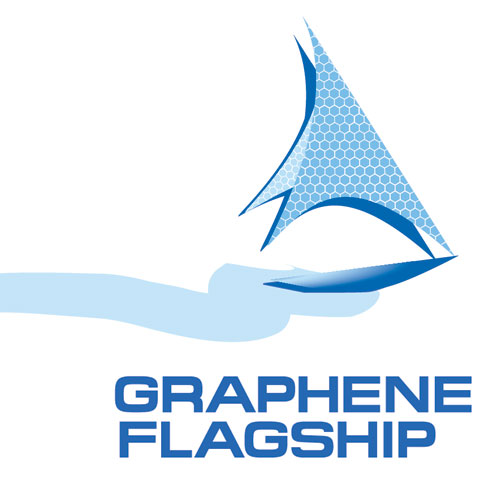Graphene appointed an EU Future Emerging Technology flagship

The European Commission has chosen Graphene as one of Europe’s first 10-year, 1,000 million euro Future Emerging Technologies flagships. The mission of this Flagship is to take graphene and related layered materials from academic laboratories to society, revolutionize multiple industries and create economic growth and new jobs in Europe.
Graphene has been subject to a scientific explosion since the ground-breaking experiments on the novel material less than ten years ago, recognized by the Nobel Prize in Physics in 2010. Graphene’s unique combination of superior properties makes it a credible starting point for new disruptive technologies in a wide range of fields that offer the possibility of changing our lives.
With today’s announcement Europe is launching a new form of joint, coordinated research initiative of unprecedented scale. The Graphene Flagship brings together an academic-industrial consortium aimed at a breakthrough for technological innovation. The research effort will cover the entire value chain from materials production to components and system integration, and targets a number of specific goals that exploit the unique properties of graphene.
Key applications are for instance fast electronic and optical devices, flexible electronics, functional lightweight components and advanced batteries. Examples of new products enabled by graphene technologies include fast, flexible and strong consumer electronics such as electronic paper and bendable personal communication devices, and lighter and more energy efficient airplanes. In the longer term, graphene is expected to give rise to new computational paradigms and revolutionary medical applications such as artificial retinas.
Lancaster Physics played an important role in the preparation of this initiative. In 2010-2011, Vladimir Falko (Lancaster) was among the key proposers Graphene Flagship idea, together with J Kinaret (Chalmers) and Nobel Prize winners A Fert (Thales) and Sir A Geim (Manchester).
In 2011-2012, together with A Ferrari and Nobel Laureate Sir K Novoselov, Falko had developed the ‘Graphene Science and Technology Roadmap’ [summary published in Nature 490, 192 (2012)]. In the unfolding Flagship, Falko acts as one of two Flagship national contacts in the UK and leads an 11-strong work-package team ‘Fundamentals of graphene, new 2D materials, and hybrid structures’, and the team of Lancaster physicists works on modelling graphene-based devices and other novel two-dimensional materials.
From its start, in 2013, the Flagship project ‘Graphene-Driven Revolutions in ICT and Beyond’ will bring together 76 academic institutions (including Manchester, Cambridge, UCL, Oxford, and Lancaster in the UK) and industrial groups in 17 European countries, with an initial 30-month-budget of €54M.
This consortium, coordinated by Chalmers University of Technology (Sweden), will be extended with 20-30 more groups through an open call, which will further strengthen the engineering aspects of the flagship. During the initial, 30 month ramp-up phase, the Graphene Flagship will focus on the area of communications, concentrating on ICT and on the physical transport sector, and supporting applications in the fields of energy technology and sensors. The details of the Flagship expansion after the ramp-up phase are a part of the discussions on the Horizon 2020 research program of the European Union.
Flagship Coordinator Professor Jari Kinaret (Chalmers) says “Although the flagship is extremely extensive, it cannot cover all areas. For example, we don’t intend to compete with Korea on graphene screens. Graphene production, however, is obviously central to our project.”
After attending the press conference in Brussels, where the European Commission Vice-President Neelie Kroes announced the two research projects chosen as winners of the Future and Emerging Technologies Flagships initiative,
Professor Falko said: “It is thrilling to see how fast research in graphene progresses. With hundreds of groups entering the worldwide race to develop graphene-based technologies, a large European project became a necessity. Our Flagship is good news for all researchers in Europe, demonstrating that the European Commission recognizes importance of research in advance materials for the European competitiveness.”
Professor Mark Smith, Vice-Chancellor of Lancaster University said: ‘It is a great achievement for Lancaster to be a key player in this Europe-wide Flagship project. The pivotal role of Lancaster under Prof. Falko’s leadership alongside partner universities, in what could be a key society changing technology in Graphene, adds to our longstanding reputation for world class physics research.’